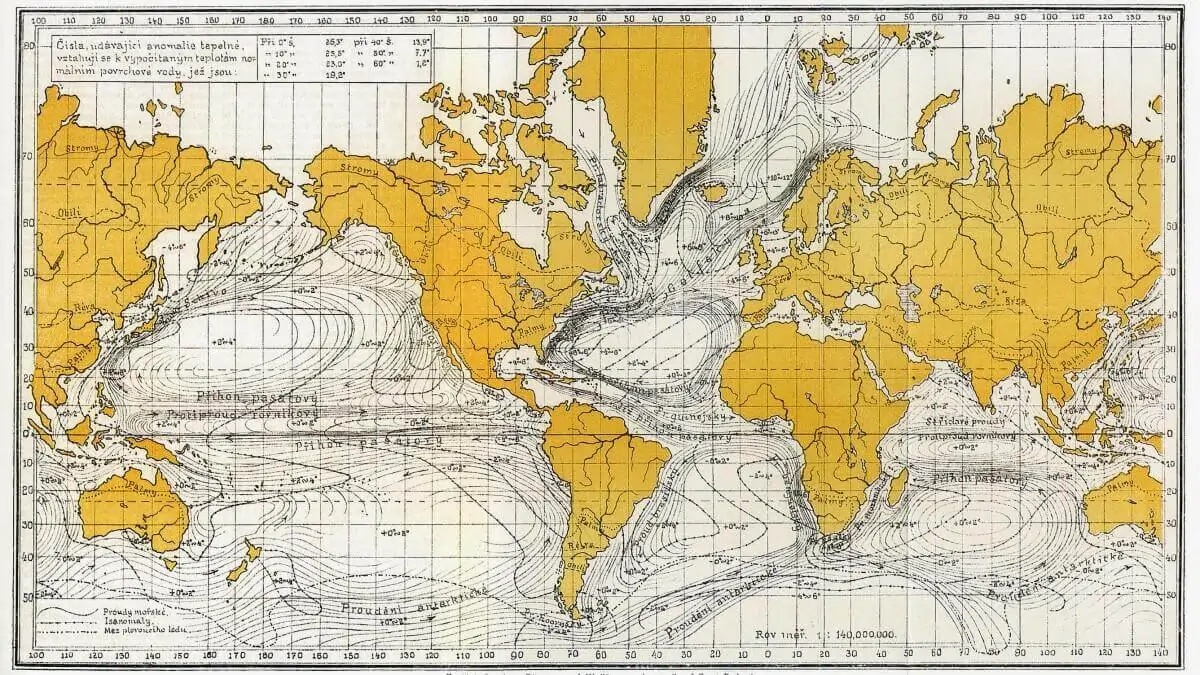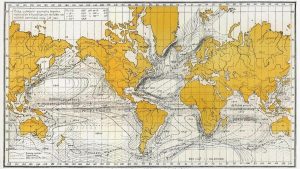Sixty-six million years of geological data suggests that heating makes ocean currents stronger.
By Ellen McPhiddian, Cosmos
Ocean currents play a big role in floods, droughts, and other large-scale weather patterns. We know that ocean circulation will be affected by global warming – but figuring out exactly how it will be affected is much more difficult.
Will there be a Day After Tomorrow-style Gulf stream weakening, or will the opposite happen with currents getting stronger? Ocean circulation is notoriously complicated and there’s debate among researchers about how to untangle conflicting sources of information.
Satellite data seems to suggest that ocean currents are, on average, becoming more intense. But satellite data only stretches back about 30 years – meaning it’s hard to be conclusive about long-term predictions.
Now those findings have been backed up by several million more years of data, thanks to researchers at the University of Sydney – and some rocks.
“If we think of the long-term evolution of the Earth, either in the past or into the future, then three decades is not a lot,” says Dr Adriana Dutkiewicz, an ARC Future Fellow and geologist at the University of Sydney.
“It could always be that something specific happened over just the last three decades. So we need to know what the longer-term behaviour of the Earth system is.”
Dutkiewicz, along with colleague Professor Dietmar Müller, went to geological records taken from deep-sea scientific drilling programs, and looked for this longer-term behaviour.
Their results, published in the journal Geology, examine the gaps, or “hiatuses”, in these geological records.
“Hiatuses are breaks in the deep-ocean sedimentation,” Müller explains.
“Typically, these places are accompanied by nearby regions where you do find these sediments. So the sediments get eroded, and then get deposited somewhere close by. And this is due to the action of deep-ocean currents.”
If there are more hiatuses, then there are likely some more vigorous deep-ocean currents causing them.
The researchers examined hiatuses from records at 293 sites scattered around the world, identifying which had been caused by ocean circulation and which may have had other causes. Once this was done, with data stretching back 66 million years, they found an unexpected pattern.
“We noticed that there were less and less and less hiatuses through time, as the world descended into a more severe ice age over the course of the last 13 million years,” Müller says.
In fact, peaks in hiatuses were linked to the hottest points in Earth’s history, while declines were linked to cooler periods.
Müller says this indicates that the deep ocean gets more intense when the climate warms.
“Our results, that happen to be consistent with the results from the satellite data over the last few decades […], suggest that ocean mixing will in fact, become more vigorous.”
Müller says this finding is only part of the picture. Ocean currents are driven by a number of different things – from winds and tides, to dense, salty water.
“We do not actually have any computer models that properly capture all these processes,” Müller says.
“Despite all the papers that have been written about this, we still have some way to go to really properly understanding how that whole system works.”
The implications for the climate aren’t clear yet either.
Dutkiewicz points out: “So far, the ocean has absorbed a quarter of anthropogenic CO2 and over 90 per cent of the associated excess heat.”
The ocean will likely have an even better capacity for storing CO2 and heat if it’s more energetic, but it’s hard to tell exactly how much better.
Nevertheless, Müller says that the satellite observations are likely not to be an anomaly.
“We have extended these satellite data studies that only cover three decades, to a much longer time and given them more credibility,” he says.
“We are pretty sure that that component of deep-ocean circulation really does speed up when you heat up the world.”
Originally published by Cosmos as When the Earth warms, the ocean speeds up
![]()


